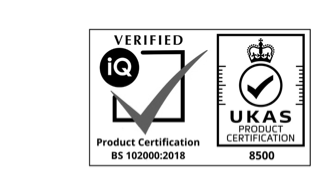In the realm of private investigation and process serving, the term “wet copies” is one that continues to surface. A wet copy refers to a document that has been physically signed with ink, as opposed to a digital signature. This traditional method of signing documents has long been the standard for legal and official paperwork. But in today’s digital age, the necessity of wet copies is increasingly being called into question.
What is a Wet Copy?
A wet copy is essentially a paper document that bears a handwritten signature. The term “wet” signifies the use of ink, which differentiates it from electronic signatures that are created digitally. Historically, wet copies have been seen as more secure and harder to forge, thus providing a greater level of authenticity and trustworthiness in legal contexts.
Do We Still Need Wet Copies?
The need for wet copies is diminishing as digital solutions become more secure and widely accepted. Digital signatures, created using secure platforms like DocuSign and VeriSign, offer an efficient and equally secure alternative to wet signatures. These services utilize encryption and multi-factor authentication to ensure the authenticity of the signer, which can arguably provide even greater security than traditional ink signatures.
Are Digital Signatures Cheaper Than Wet Copies?
Using digital signatures can be significantly cheaper and faster than traditional wet copies, which is especially beneficial for those trying to save money when they hire a process server. Digital signatures reduce the need for printing, postage, and the time taken to print, sign, and send documents. By eliminating these costs, businesses and individuals can save money and streamline their processes. Digital platforms like DocuSign may have associated costs but there are tools that allow a users to add a digital signature to a word document or a PDF without additional charges.
Differences Between Wet Copies and Digital Signatures
While wet copies are physical documents signed by hand, digital signatures are electronic forms of authentication created using digital means. Digital signatures often involve a unique identifier for each signer and document, making it difficult to replicate or forge. Additionally, digital signatures come with a timestamp and can be easily verified, adding another layer of security.
Documents Requiring Wet Copies
Despite the advantages of digital signatures, certain documents still require wet copies by law or convention. These include:
- Legal Documents: Some court filings and legal notices.
- Mortgage Agreements: Lenders often require physical signatures on mortgage documents.
- Financial Documents: Certain banking transactions and agreements.
- Marriage Certificates: Many jurisdictions require a wet signature for marriage certificates and other vital records.
- Statements or Certificates of Service: Documents like affidavits often require not only a wet signature but also need to be signed in the presence of a solicitor or notary to ensure authenticity and legal compliance.
In these cases, the insistence on a wet copy is often due to longstanding regulations and the perceived authenticity that a handwritten signature provides.
The Shift Towards Digital Solutions
However, the landscape is changing. Many industries are embracing digital signatures due to their convenience and efficiency. Services like DocuSign and VeriSign allow users to sign documents electronically, which eliminates the need to print, sign, scan, and send physical documents. This not only saves time and resources but also aligns with the modern trend of reducing paper usage and moving towards more sustainable practices.
Is There Still a Need for Wet Signatures Today?
In conclusion, while wet signatures are still necessary for certain documents, the overall trend is moving towards digital solutions. The security, efficiency, and environmental benefits of digital signatures make them an attractive alternative. For private investigators and process servers, understanding the contexts in which wet copies are required and where digital signatures can be used is crucial. As technology continues to evolve, it is likely that the reliance on wet signatures will continue to decrease, paving the way for a fully digital future.
The transition may not be immediate, but the direction is clear. Embracing digital signatures can streamline operations, enhance security, and improve client satisfaction in the long run. Therefore, it is important to stay informed about legal requirements and technological advancements to make the most of the available tools.

 Surveillance
Surveillance Matrimonial Investigations
Matrimonial Investigations Bug Sweeping
Bug Sweeping GPS Vehicle Tracking
GPS Vehicle Tracking Lie Detector Test
Lie Detector Test Person Tracing
Person Tracing Employee Investigations
Employee Investigations Asset Tracing
Asset Tracing Fraud Investigations
Fraud Investigations Injury & Insurance Investigations
Injury & Insurance Investigations







